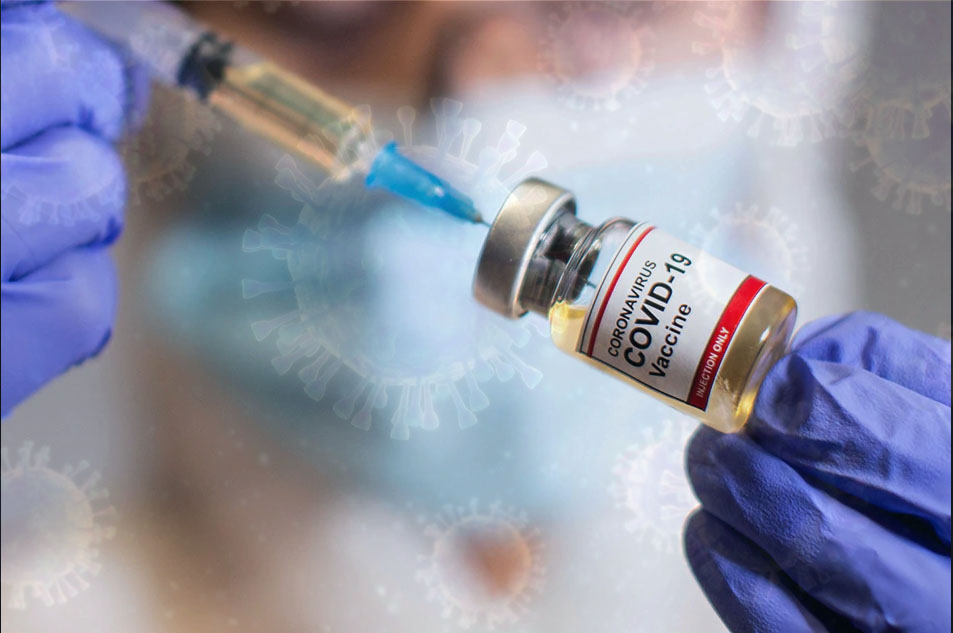A Vaccine for All

For almost a year in this pandemic, we are still hoping for a cure to the dreaded COVID-19. Death toll continues to rise. Before the end of this month, almost 2.5 million deaths worldwide have been recorded (as of February 19, 2021, approximately 2,448,188 deaths). And yet, the vaccine war is creating instability in the approach of addressing the pandemic—solutions can hardly be achieved in our global fight against the pandemic, global recovery is still elusive. During the UN Security Council Meeting last February 17, 2021, António Guterres, the UN Secretary-General said, “Yet progress on vaccinations has been wildly uneven and unfair… The world urgently needs a Global Vaccination Plan to bring together all those with the required power, scientific expertise and production and financial capacities.”

Solidarity call for equity
Who gets vaccinated first? The rich or the poor? It is from these questions that Pope Francis offered a powerful message aiming to address the emerging greed for vaccines: “Today, in this time of darkness and uncertainty regarding the pandemic, various lights of hope appear, such as the discovery of vaccines. But for these lights to illuminate and bring hope to all, they need to be available to all. We cannot allow the various forms of nationalism closed in on themselves to prevent us from living as the truly human family that we are. Nor can we allow the virus of radical individualism to get the better of us and make us indifferent to the suffering of other brothers and sisters.” (Urbi et Orbi, Christmas 2020 Message)

As countries are now starting to purchase the available vaccines, richer countries are on top of the list. There should be an equitable distribution, sans ‘nationalism’ and ‘individualism,’ if there is none we will not be solving the pandemic. “Thirty-six of these are high-income countries and six are middle-income countries, so there is a clear problem that low and most middle-income countries are not receiving the vaccine yet… vaccine nationalism hurts us all and is self-defeating,” said Tedros Adhanom Ghebreyesus, WHO Director-General.
Likely so, business runs into this merchandise war for COVID-19 vaccines. That aside from looking for the most effective and safest, some countries are bargaining sovereignty and even taking billion-dollar loans laden with corruption and at the expense of the people’s money.

Poor nations should not be forgotten, “Vaccine nationalism is self-defeating and will only delay global recovery. Together, we must keep our promise to leave no one behind,” a message from António Guterres, the UN Secretary-General (2021 session of the Special Committee on Decolonization, February 18, 2021).
The other pandemics
The COVID-19 pandemic rippled into more social diseases, disastrous ones. We have seen how governments addressed the economic side of the impact, by bailing-out corporate giants instead of rescuing small businesses and of providing sustainable support to families especially those belonging to the low and non-income. This has created havoc and more damaging impacts to societies and families. Currently, economic poverty is increasing, and during this pandemic, it becomes immeasurable!
The lockdown became opportunities of repressive political measures too: armed conflicts, political arrests, and killings continue to happen even in the midst of the pandemic. “Our island awaits the day when the blood from the pandemic of violence stops flowing… When our priests in the diocese end burying victims of these orchestrated acts of terrorism,” said Bishop Gerardo Alminaza of the Diocese of San Carlos, Philippines in protest of the killings in his diocese even in the midst of the pandemic. Similar experiences are happening in Latin American countries.
Finding the other vaccines
Our common enemy is not just COVID… We have created more dreaded social diseases. We need to find a better cure of our vulnerabilities, such as humane public health system; economic, social and psychological problems. As the pandemic provided us opportunities to see and admit not just the social fragilities, but more so, the brokenness of our health systems and the incapacities of our politically divided government structures are also brought into light.
The other vaccines can address the added social suffering resulting from the impacts of the continuing pandemic. Pope Francis, in his message for the 29th World Day of the Sick, speaks of solidarity, as our efficient medicine of the pandemic, “… the pandemic has also highlighted the dedication and generosity of healthcare personnel, volunteers, support staff, priests, men and women religious, all of whom have helped, treated, comforted and served so many of the sick and their families with professionalism, self-giving, responsibility and love of neighbour. A silent multitude of men and women, they chose not to look the other way but to share the suffering of patients, whom they saw as neighbours and members of our one human family.” The UN Secretary-General António Guterres said: “The COVID-19 crisis has shown above all the urgent need for human solidarity.”
Ending the pandemic rests on our commitment to care through solidarity.
